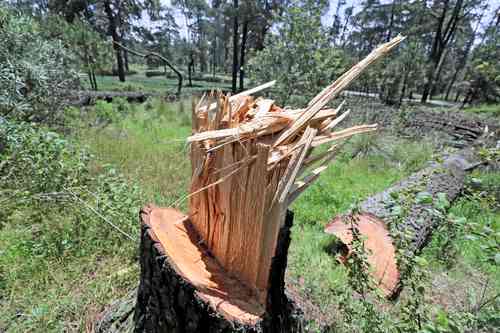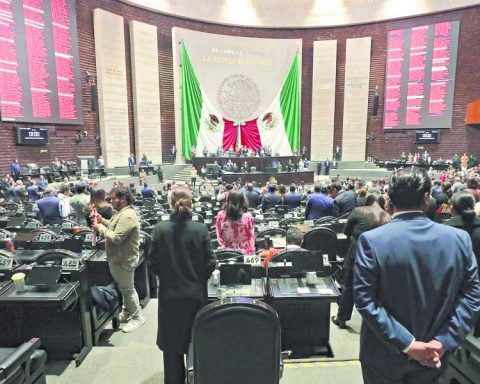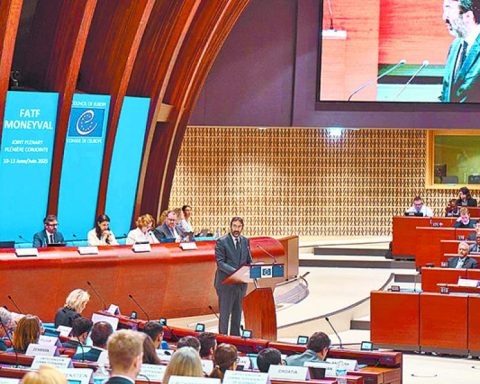▲ Between kilometers 17 and 20 of the Mexico-Cuernavaca federal highway, on the border between the state of Morelos and Mexico City, you can see cut logs and fallen trees that leave loggers. The image was captured on July 24.Photo Roberto Garcia Ortiz / the day
Angelica Enciso L.
Newspaper La Jornada
Monday November 21, 2022, p. 19
In the country there is a wood market full of blood and injustice
in which the forests, biodiversity, water and social benefits are not taken care of, and there is another fair, where the use is orderly, said Andrés Juárez, of the Mexican Civil Council for Sustainable Forestry.
He recalled that there are 14,341 forest agrarian nuclei with at least 200 hectares of jungle, forest or scrub; They own 60 percent of the country’s forests and jungles, totaling 66 million hectares. There is potential to harvest between 15 and 18 million hectares, but in 2019 only 5 million were under authorized commercial logging, he added.
During the videoconference Other perspectives on climate change, convened by the University Coordination for Sustainability of the National Autonomous University of Mexico (UNAM), highlighted that forest policy has given priority to passive conservation over productive activities and the development of productive capacities in forest communities; does not support capacity building or the design and development of carbon projects.
In turn, Marta Astier, from the UNAM Environmental Geography Research Center, said that there is very strong pressure from industrial agriculture, whose main goal is to generate profits and its base is the corporations that control everything from seeds and inputs to concentration and distribution of food.
He pointed out that landscapes that were mosaics of forests, crops and fruit trees have become monocultures (for example, avocado) and the microclimate changes, the collection and storage of water in the soil and aquifers are reduced, evapotranspiration rises and temperature, fewer clouds form and rain cycles are altered.
He said that the intensive use of pesticides such as glyphosate or paraquat generates dependency and deterioration of the soil, and even the collapse of production systems.

















